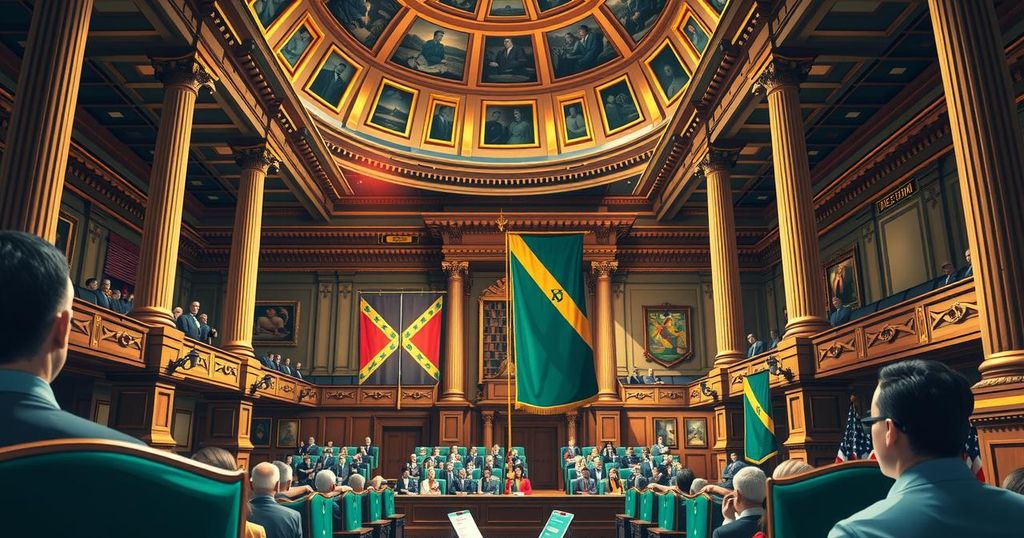South Africa’s parliament passed the 2025 Budget, introduced by Finance Minister Enoch Godongwana, despite significant opposition to a VAT increase. The budget was approved by a narrow margin following weeks of political debate, with the VAT set to rise to 16% by the 2026/27 financial year to address funding shortfalls.
On April 2, 2025, South Africa’s National Assembly passed the 2025 Budget, which was presented by Finance Minister Enoch Godongwana. The budget faced significant opposition due to a proposed increase in value-added tax (VAT) but was approved by a narrow margin of 194 votes to 182, without any abstentions.
Originally scheduled for February, the budget was delayed due to disagreements surrounding the VAT hike. The proposed plan involves a phased increase, with VAT set to rise by 0.5 percentage points in both the 2025/26 and the following year, ultimately raising the rate to 16 percent by the 2026/27 financial year.
In his address, Minister Godongwana justified the tax hike as essential for maintaining public services amid increasing fiscal pressures in critical sectors such as health, education, transport, and security. However, this decision led to strong opposition from the Democratic Alliance (DA), the second-largest party in the coalition.
The DA criticized the budget, raising concerns about the tax increases and the government’s spending priorities. Although the DA had indicated conditional support for the budget, this was dependent on the withdrawal of the Expropriation Act. Following intense political negotiations, the ruling African National Congress managed to secure enough votes from smaller coalition partners to ensure the budget’s passage.
In conclusion, the passage of the 2025 Budget in South Africa marks a significant but contentious step in addressing fiscal challenges through a VAT increase. Despite strong opposition from the Democratic Alliance and concerns regarding government spending, the ruling African National Congress successfully garnered the necessary support to approve the budget, reflecting ongoing political negotiations within the coalition. The implementation of the new VAT rates aims to bolster public services, although it remains a point of contention among opposition parties.
Original Source: english.news.cn




